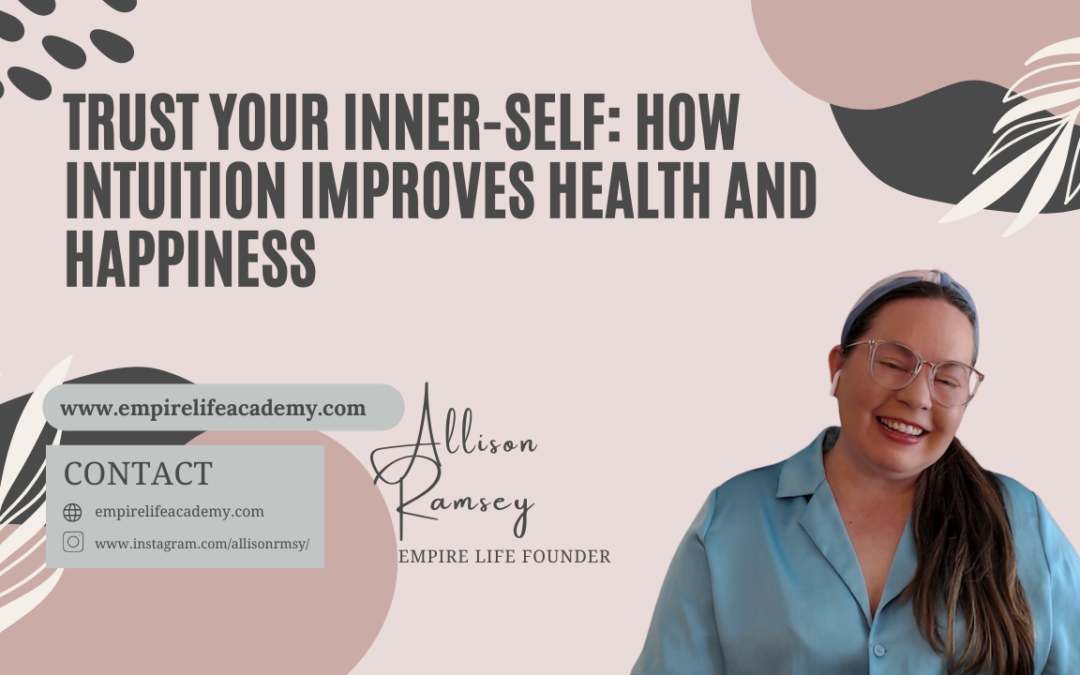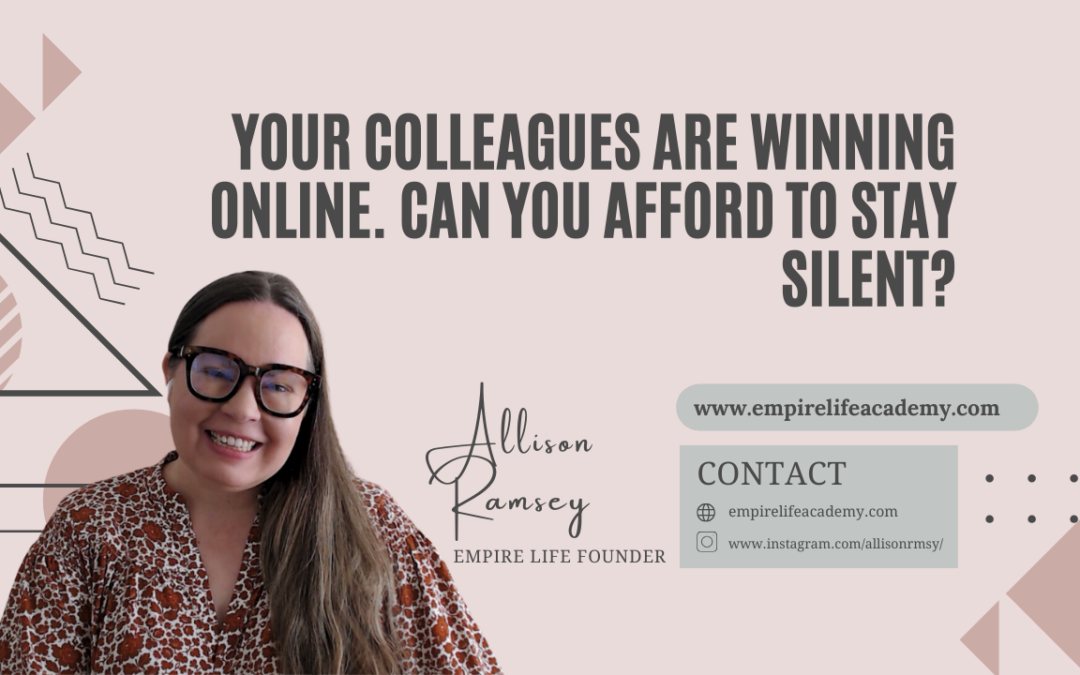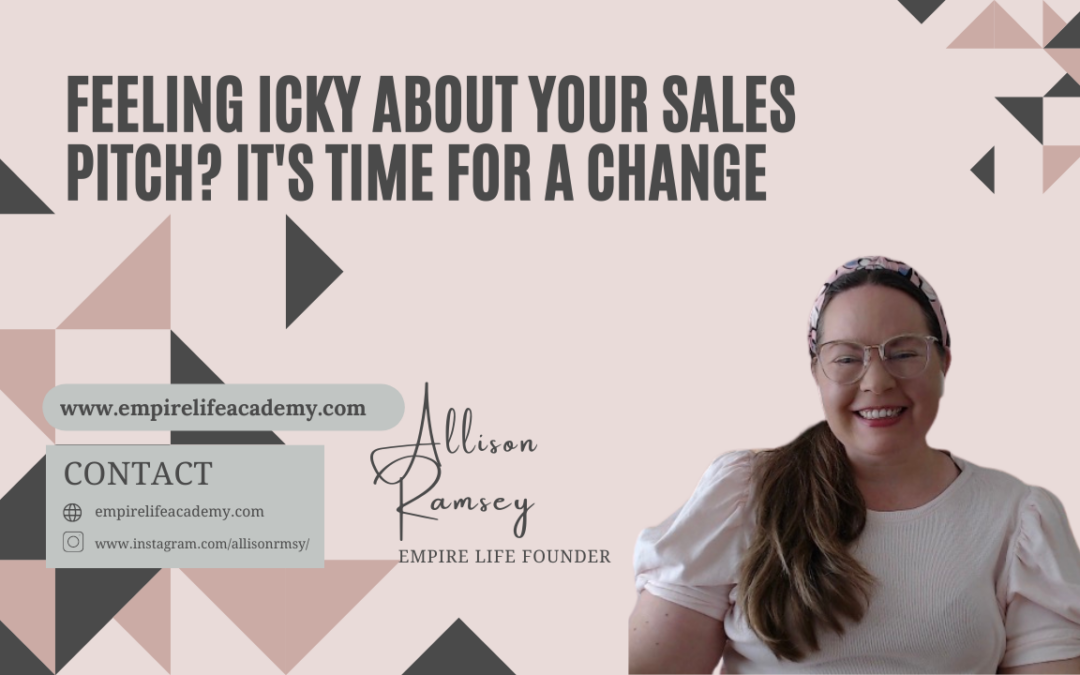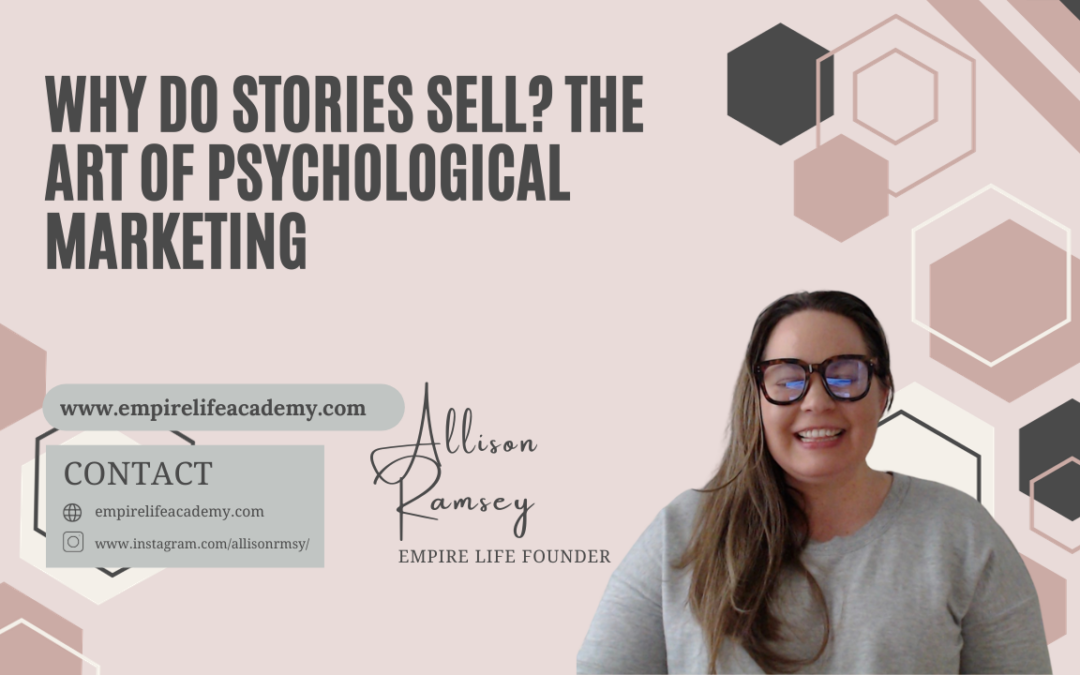Why Do Stories Sell? The Art of Psychological Marketing
There’s a powerful truth that echoes through the halls of advertising agencies and start-up garages alike — “People don’t buy products, they buy stories.”
Isn’t that just the truth?
Think about it.
When was the last time you bought something just because, well, you thought you needed it? Not often, right?
That’s because we’re creatures of emotion, not logic.
We’re drawn to tales of triumph, to anecdotes that stir us, to products that come alive with a story.
That’s the million-dollar question we’re tackling here. In this blog, we’ll explore the magic that happens in the space between ‘Once upon a time’ and ‘Add to cart.’ That’s because it’s not just a product we’re handing over the cash for.
It’s the experience, the identity, the dream we’ve been sold.
Stick around and let’s unravel this narrative together.
———–
Your Business ROI
All of coaches and female-led businesses who implemented Empire Life’s business strategies in client leads, monthly income (often a 20X increase from when they started with Empire Life’s support), and client retention after having Empire Life Mentorship, apply here.
————–
The Human Connection to Storytelling
Ever since the first storytellers painted tales on cave walls, we’ve been hooked on stories. It’s not just a pastime—it’s a primal need. When someone tells you a story, it’s not just words you’re hearing. You’re feeling something. That emotional buzz? It’s the story working its magic that will connect with you on a level that straight-up facts never could.
This is what stories do:
- They create an emotional echo that sticks with us, far longer than any statistic.
- They act like a mirror, reflecting our own experiences or the ones we yearn for.
Why does this matter for marketing? When you pitch a product with a story, you’re doing more than showcasing features—you’re striking a chord. You’re not just targeting the wallet; you’re aiming for the heart.
Think of this:
- A story can build trust. It feels more personal, more genuine. Let’s face it, we’re all a bit more likely to buy from someone we trust.
- It inspires. We see ourselves as the protagonist in these marketing narratives, and it’s powerful.
There you have it. Less about the story’s specifics, and more about the shared feelings and dreams they evoke. That’s the secret sauce in the marketing mix. Stories aren’t just stories; they’re experiences, and experiences are what we really buy into.
————–
For the female businesses who are scaling, who are already making over $20,000USD-$40,000USD per month, there needs to be a different and unique level of support, just for you. This leads me to our mastermind (doors opening soon!!), and masterminds in general to be a part of, contact us and apply here.
————–
Ethical Considerations in Psychological Marketing
Stories are the lifeblood of human connection. They resonate because they speak to experiences we all share, emotions we’ve all felt. In marketing, stories aren’t just fluff; they’re strategic tools. They captivate, engage, and often remain in our memories long after facts and figures have faded. That’s the magic of a good narrative.
Let’s talk about that fine line, though, between persuasion and outright manipulation. It’s a bit like tightrope walking. Marketers can, and should, harness the power of a story to connect with their audience.
However, the moment they cross over into exploitation, using psychological triggers irresponsibly, they risk losing trust. Now you should keep in mind that in the world of branding, trust is your currency.
There’s a responsibility that comes with this power. Ethical marketing isn’t just a nice-to-have; it’s a must-have. It respects the consumer’s intelligence and autonomy. When done right, it creates a win-win situation. The brand grows, and the consumer’s life is enriched through valuable products or services.
What about storytelling, then?
How can it be used ethically?
Well, it starts with authenticity.
Genuine stories that reflect a brand’s true values and mission can build lasting relationships with consumers. These stories should offer real value, whether that’s insight, entertainment, or a sense of community. They should invite consumers into a conversation, not a sales pitch.
Remember, at the end of the day, consumers are savvy. They can spot a disingenuous story from a mile away. However, when they encounter a brand that shares honest stories, that brand sticks. They’re likely to become not just customers, but advocates.
Again, why do stories sell?
They sell because they’re not just selling. They’re telling, sharing, and engaging in a way that resonates on a deeply human level. That’s the art of psychological marketing. It’s not about the hard sell; it’s about the heart sell.
Measuring the Impact of Storytelling in Marketing
Measuring the impact of storytelling in marketing is a bit like detective work. You’ve got to look for clues and connect the dots to see the bigger picture. It’s not just about ‘Did it feel right?’ but more ‘Did it do right by the numbers?’
When it comes to tools and methods, marketers are spoilt for choice. Analytics platforms are the magnifying glasses of the marketing world. They let you zoom in on how your story is being received. Think of web traffic, engagement rates, and conversion metrics. These are your bread and butter when assessing a story’s reach and resonance.
Now, let’s dive into key performance indicators or KPIs for the insiders. These are your beacons in the foggy world of data. For storytelling campaigns, it’s not just about sales and leads. It’s also about the engagement: shares, comments, and the time spent on your pages. These KPIs tell you if your story is just a passing glance or a captivating saga for your audience.
However, the work doesn’t stop once the story is out there.
The real craft is in the adapting, the evolving. This is where consumer feedback and engagement data come into play. They’re your compass.
Did your audience find the story relatable? Was there a character they loved or a plot twist they couldn’t get enough of? This feedback is gold dust for fine-tuning your narrative.
Plus, let’s not forget the power of A/B testing. Try out different versions of a story, see which one sticks. It’s like choosing your own adventure, but for your marketing strategy.
To sum it up, storytelling in marketing isn’t just an art; it’s a science. By leveraging the right tools and responding to data, you ensure that your story doesn’t just get told — it gets heard, felt, and acted upon. That’s how you turn a good story into great results.
———–
Have you had a chance to grab our best-selling book, with women’s stories of their rising to success, and Redefining their success?
If you want to be featured in the upcoming book RECLAIM, Series 2, are you a female founder, with an incredible story to share with millions to inspire them, apply here.
———–
Future Trends: The Evolution of Storytelling in Marketing
The future of storytelling in marketing is like opening a new book with infinite pages. It’s exciting, a bit mysterious, and loaded with possibilities, especially with emerging technologies in play.
Imagine strapping on a VR headset and stepping into a story where you can interact with products in a simulated world – or, picture AR applications that bring a brand’s story to life right in front of your eyes. These aren’t just cool gadgets; they’re revolutionizing the way marketers tell stories. Plus, we already see this happening with companies like Apple and Nike.
Authenticity is another big chapter in this future. It’s becoming the heartbeat of brand narratives. Why? Because in a world buzzing with content, the truth speaks the loudest. The raw, unfiltered stories from users themselves, are the stuff that can make a brand feel like a close friend rather than a faceless entity. User-generated content is the megaphone for this authenticity. It’s real, it’s relatable, and it resonates.
Looking into the crystal ball, predictions for storytelling in marketing are all about interactivity and immersion. It’s not just telling a story; it’s about letting your audience live it. Brands will become story-doers, not just storytellers. They’ll craft experiences where the consumer is the protagonist, and their actions drive the narrative forward.
We’ll also see a shift toward more inclusive and diverse stories that reflect the world we live in. With the rise of AI, personalized storytelling will likely become the norm, with narratives tailored to individual interests, behaviors, and even moods.
In essence, the evolution of storytelling in marketing is about creating a 360-degree narrative ecosystem that surrounds, engages, and moves the audience. It’s about crafting stories that aren’t just seen or heard but experienced in multiple dimensions.
That’s the future – a symphony of technology, authenticity, and interactivity that turns marketing into something not just to be consumed, but to be a part of.
———–
Have you joined Quora yet? To speak your mind, ask questions, and display yourself as an expert there.
———–
Ethical Considerations in Psychological Marketing
In psychological marketing, the line between persuasion and manipulation can be as thin as a razor’s edge. It’s a balancing act that requires a deft touch and a steadfast moral compass. Persuasion, when ethical, is like a dance, leading consumers through a story that aligns with their needs and desires. Manipulation, however, is a push into decisions that may not be in the consumer’s best interest. That’s a no-go zone.
Marketers wield a considerable amount of influence. With great power comes great responsibility. They must use psychological tactics not as sledgehammers but as paintbrushes, creating a picture that is both truthful and beneficial. Misusing psychology can erode trust and damage a brand’s reputation in the long run. It’s not just about making a sale; it’s about building a relationship.
Storytelling, done ethically, is a powerful tool that serves a dual purpose: it benefits consumers by informing and engaging them in a relatable way, and it aids brands by building a loyal customer base. When stories are genuine, they can forge an emotional connection and provide value, which is the essence of ethical marketing. It’s about finding that sweet spot where consumer needs meet brand narrative, creating a harmony that resonates on a human level.
The art of ethical storytelling in marketing is not just in the tale itself, but in the teller’s intent. It’s about ensuring that the stories we spin and the experiences we craft are not just compelling but also conscientious, respectful, and ultimately, a force for good.
———–
With heavily investing in ourselves there is also no need to invest in multiple online courses and masterminds which are not geared toward the woman scaling her business.
We are launching our women’s and invite only Empire Life Mastermind for female founders who are scaling their businesses, and can display in the vetting process making 20,000 USD a month consistently.
———–
In Conclusion
Looking ahead, we’re on the cusp of a new era in marketing, where the stories we tell are set to transform with the unfolding of technology and the undeniable clamor for authenticity. We’ve seen how stories are not just an accessory to a product, but they are the soul of what we’re buying into. The stories that will thrive in this dynamic future are the ones that stay true, that speak of real people, real dreams, and real journeys.
Emerging technologies like VR and AR are adding new dimensions to this truth, allowing us to step into stories, to live them in ways we’ve only imagined. As these technologies become more mainstream, they’ll allow brands to create immersive narratives that are not just seen or heard but truly experienced.
Even as we embrace these technological marvels, the heart of storytelling remains unchanged — it’s about connection. This connection is powered by authenticity. User-generated content is becoming the cornerstone of this authentic storytelling, as it carries the weight of genuine experiences. It’s raw, it’s unfiltered, and most importantly, it’s personal.
In this dance between innovation and authenticity, brands need to keep step with ethical considerations. The future calls for stories that are not only engaging and immersive but also responsible and respectful. It’s about creating narratives that empower consumers, that enrich their lives, and that foster trust.
As we’ve explored the art of psychological marketing, we’ve seen the power of stories to not only sell but to also build lasting relationships and create shared value.
Looking to the future, this power only grows, and with it, our responsibility to wield it wisely.
————–
Hoping this article finds you well, and as always we love to hear from you in the comments!
Thanks for reading!
HOW TO GET IN TOUCH WITH EMPIRE LIFE
You can also find more information about Allison Ramsey, Facebook Digital Marketing Professor & Empire Life Founder at Instagram, LinkedIn, Website, and Twitter.
To learn more about getting started with Empire Life in launching and scaling your online empire you can contact Allison, Founder of Empire Life, on Instagram and LinkedIn.
“Looking to the future, this power only grows, and with it, our responsibility to wield it wisely.“
our Recent blogs
Check Out The Most Recent Blogs.

Trust Your Inner-self: How Intuition Improves Health and Happiness
Trust Your Inner-self: How Intuition Improves Health and Happiness Have you heard about the story of the female founder who was on the verge of signing a major contract that simply didn't feel right? The numbers added up, the potential gains were huge, but something...

Your Colleagues are Winning Online. Can You Afford to Stay Silent?
Your colleagues are Winning Online. Can You Afford to Stay Silent? Did you know that 82% of consumers are more likely to trust a company if its founder or CEO is active on social media? That's alarming news for many female founders who might feel overwhelmed or unsure...

Feeling Icky About Your Sales Pitch? It’s Time for a Change
Feeling Icky About Your Sales Pitch? It's Time for a Change SALES PITCH can be an annoying and triggering word for many women in business. We dream of building enterprises (aka empires) fueled by passion, making an impact, and serving our ideal clients. Yet, when it...
Let’s scale your online empire.
Say Hello!
Hi There! We will love to hear from you! Come Find Us on social and dm us!


Your insights are always on point.
I have been exploring for a little bit for any high quality articles or weblog posts in this kind of area . Exploring in Yahoo I at last stumbled upon this website. Reading this info So i am satisfied to exhibit that I have a very just right uncanny feeling I discovered just what I needed. I most certainly will make certain to don¦t omit this site and give it a look on a relentless basis.
Obviously like your website. Will certainly come back again.
The more you write, the more you refine your voice as a writer.
The overall look of your site is great as well as the content. You made it look so easy.
Bright ideas from bright author.